By Lori Hanson
You’ve just found out your daughter (or son) has an eating disorder. As a concerned parents you may be overwhelmed, in a state of panic and not sure what to do or where to go next. This news will completely rock your world and potentially your confidence in your parenting skills, although it needn’t.
Eating disorders have become too common these days and aren’t limited in the flavors they show up in. Whether your child has a clinical case of anorexia nervosa and restricts food, or uses laxatives or excessive exercise to drop weight the net result is the same. Bulimia comes in many shades as well, not all bulimics purge. Bulimics may put on weight quickly, then diet and exercise excessively or use laxatives to get it off.
The clear lines of anorexia, bulimia and binge eating disorder have been blurred. And because insurance companies need a diagnosis on a form, EDNOS came to be, which is the catchall, Eating Disorders Not Otherwise Specified. So don’t feel bad if you didn’t see it coming, or if you daughter denied it for months, or even years…it happens. And isn’t necessarily a direct reflection on you as a parent.
However, the contributors to eating disorders typically involve, influences from society (commonly known), pressures from growing through adolescent years, family relationships, and being in environments where there is a strong focus and repeated conversation about diet, exercise and body image that is negative. Low self-esteem is another large piece of the puzzle, if these girls felt confident in themselves and who they are, it wouldn’t affect them. Peer pressure and unfortunately all too often, sexual abuse and early life trauma may also contribute to an eating disorder.
With a strong need to numb out from things that don’t feel good and a need for an outlet to significant stress, some individuals turn to eating disorders instead of violence, drugs, alcohol and smoking. And because it is a behavioral addiction, by the time they realize they’ve gotten sucked in, it is very difficult to break the habit because it’s now an obsession and all they focus on.
Two things are critical to help individuals recover that aren’t widely used in traditional treatment. The inclusion of working on mindset and balancing brain chemistry. Many treatment programs are focused on “fixing” the problem and daily the discussion is about the behavior, what they weigh, good foods/bad foods, watching them go to the bathroom so they won’t throw up which putts even more emphasis on the problem.
Psychologist and psychiatrist, Carl Jung said “All the greatest and most important problems of life are fundamentally insolvable. They can never be solved, but only outgrown.” And that is certainly the case with eating disorders. It is part of the path of this individual’s life, shaping them into who they will become.
Additionally, understanding that we cannot solve a problem by focusing on it brings great freedom and a new sense of direction. It’s important for the individual to begin to focus on what they want, outside of what they hate about food and themselves. But this is difficult when they are trapped in obsessive behaviors. That’s where balancing the brain chemistry becomes a critical key to change.
With a punishing diet and dealing with a stressful existence, our mood transmitters get depleted. Julia Ross says, “It (your brain) stops producing normal emotions on a consistent basis. Instead, it starts hitting false emotional notes, like a piano out of tune.”
Nutritional therapy, using natural amino acids in combination with a balanced diet move the individual from sheer willpower to having the desire and objectivity to accept recovery as possible. The younger an individual is, the more quickly they will respond, as the older you are, the more depleted the neurotransmitters are.
Recovery is possible. So many individuals convince themselves they can’t have it. Either because they are scared to let go of the safety blanket aka coping mechanism, or because they have tried repeatedly and not found lasting success. However, by incorporating tools to shift mindset and using an all natural nutrition therapy individuals can and will fully recover. antidepressants are merely band aids, they do not refuel brain chemistry and can cause additional issues.
A natural, integrated approach can bring your daughter (or son) back to not only embrace, but enjoy life. The twinkle in their eyes will return along with an attitude that will carry them far along their path in life.
To learn more about this approach, and relieve the stress from “the diagnosis” visit us.
For support after treatment visit our online community, FindingHopeEDSupport.
©2013

